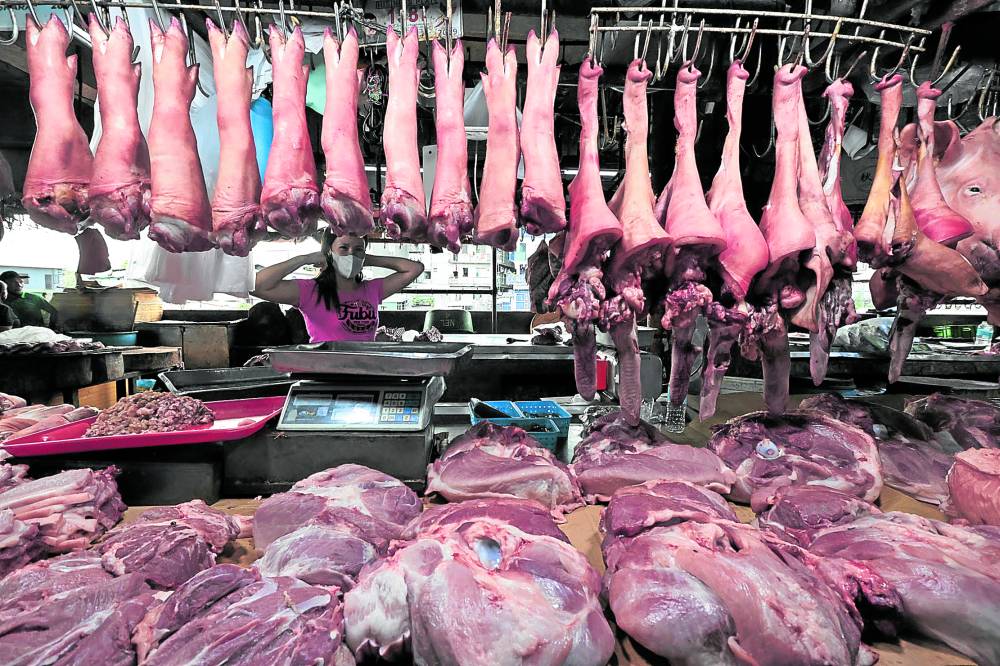Pork price hike as Holy Week nears puzzles DA

SUPPLY SHORTAGE The Department of Agriculture expects a shortage in the supply of pork this month due to the outbreak of African swine fever. —GRIG C. MONTEGRANDE
The Department of Agriculture (DA) is looking into the cause of a spike in the price of pork products despite the usual drop in demand during the Holy Week season.
According to Assistant Agriculture Secretary Rex Estoperez, retailers have complained that their suppliers informed them of a P5 price increase on April 1.The DA official made the remark on the same day President Marcos said that inflation, or the increase in prices, remains the “biggest problem” of the government.
“We know that our biggest problem at the moment is the continuous rise in prices,” Mr. Marcos said during the launching of another Kadiwa store in Limay, Bataan, on Friday.
“This became a problem because we have become overdependent on importation. We neglected agriculture for so long,” the President said, citing the surge in price inflation in the country.
He said the government would expand the opening of more Kadiwa stall—government-subsidized low-cost stores—to slow down the rise in prices.
Article continues after this advertisement“We are analyzing [the pork price hike],” Estoperez said in Filipino. “Was the upward pressure on pork prices caused by the decline in poultry production? … because the prices of pork and chicken usually decrease during Holy Week.”
Article continues after this advertisementEstoperez said the spike may have also been caused by small hog raisers, who comprise the bulk of the country’s pork producers.
“During the summer season, small players usually reduce their output,” he said, adding that the heat makes swine susceptible to illness.
A serious challenge
African swine fever (ASF) remains a serious challenge to the local swine industry.
Data from the Bureau of Animal Industry (BAI) shows there are active cases of the deadly animal disease in 11 regions, 21 provinces, 54 municipalities and 137 barangays as of March 27.
Affected regions are Cordillera Administrative Region, Ilocos Region, Central Luzon, Calabarzon, Bicol Region, Western Visayas, Central Visayas, Eastern Visayas, Soccsksargen, Caraga Administrative Region, and Bangsamoro Autonomous Region in Muslim Mindanao.
Estoperez assured that the government is exerting all efforts to contain ASF, which first broke out in 2019.
Historically, the consumption of fish and seafood products increase during the Lenten season as Catholics across the country fast and practice abstinence from meat products, especially on Good Friday.
But markets in Metro Manila were selling pork ham (kasim) from P290 to P350 per kilogram as of Friday, higher than P270 to P340 per kg last March 24, based on the DA’s price monitoring.
RELATED STORIES
Transport of ‘lechon’, cooked pork out of Carcar okay despite ASF
Record-high 2022 pork imports seen to further harm local meat producers